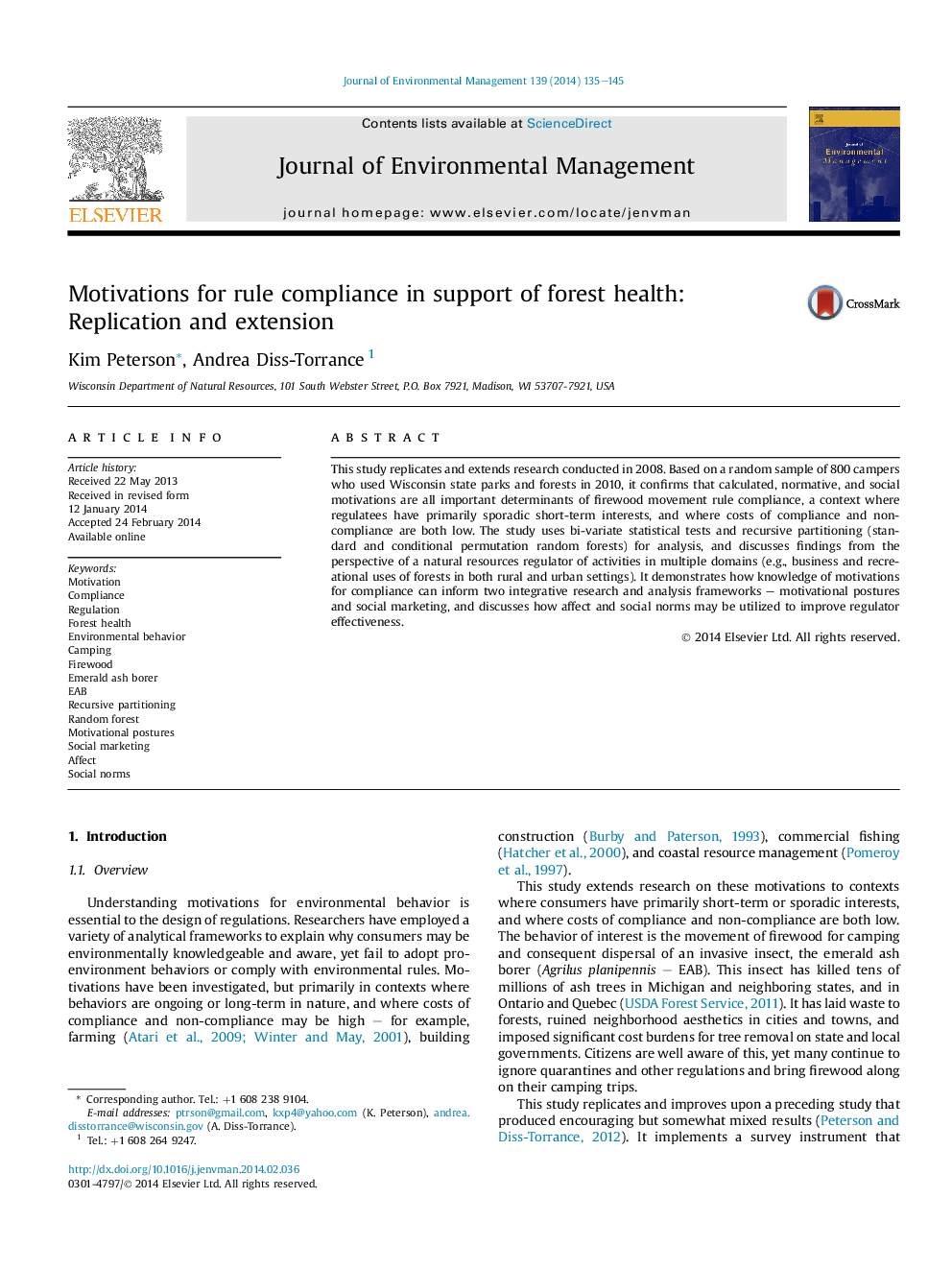| Article ID | Journal | Published Year | Pages | File Type |
|---|---|---|---|---|
| 7483952 | Journal of Environmental Management | 2014 | 11 Pages |
Abstract
This study replicates and extends research conducted in 2008. Based on a random sample of 800 campers who used Wisconsin state parks and forests in 2010, it confirms that calculated, normative, and social motivations are all important determinants of firewood movement rule compliance, a context where regulatees have primarily sporadic short-term interests, and where costs of compliance and non-compliance are both low. The study uses bi-variate statistical tests and recursive partitioning (standard and conditional permutation random forests) for analysis, and discusses findings from the perspective of a natural resources regulator of activities in multiple domains (e.g., business and recreational uses of forests in both rural and urban settings). It demonstrates how knowledge of motivations for compliance can inform two integrative research and analysis frameworks - motivational postures and social marketing, and discusses how affect and social norms may be utilized to improve regulator effectiveness.
Keywords
Related Topics
Physical Sciences and Engineering
Energy
Renewable Energy, Sustainability and the Environment
Authors
Kim Peterson, Andrea Diss-Torrance,
